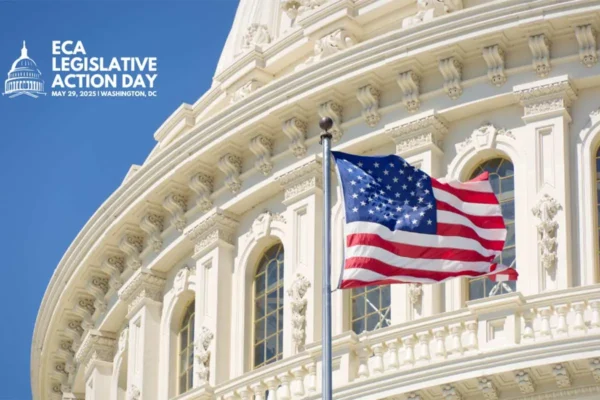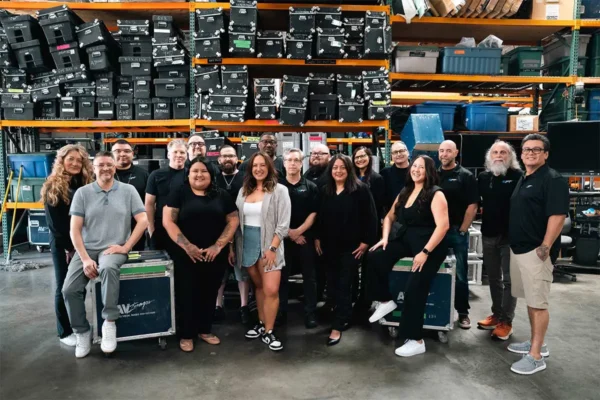By Tahira Endean, CMP, BHM, manager of events, QuickMobile
Mobile event apps are an increasingly necessary piece of any event strategy. In their infancy, mobile apps were simply tools to replace the program guide or meeting agenda. Attendees were likely satisfied with the experience if they had an updated list of speeches and presentations, and a map of the expo hall.
Today, apps not only provide the information and resources to keep attendees informed about event activities, they help shape the entire event experience. Below is a list of seven must-have features that will ensure your mobile meeting apps help you achieve your events’ goals and objectives.
- 1. Must engage audience
The purpose for focusing on attendee engagement is to increase the value that people take away from your event. By providing a personalized platform for your audience to get involved, voice their opinions, weigh in on content and programming, get social and feel a part of a community, event organizers enable ongoing conversations among attendees, speakers and organizers.
Apps that deliver features such as real-time surveying and live polling, session and speaker Q&A, in-app messaging, message boards and integrated social networking will be key to your event’s success if engagement is your goal.
- 2. Must have integrated gamification
Gamification modules offer a platform for attendees to do more at events and create the opportunity for unlikely connections along the way. Having defined goals and success metrics will be the backbone of a positive experience. Jive Software recently leveraged gamification for its Jive World 2013 mobile event app. Here are some of the results of the app:
- Achieved 104 percent adoption as attendees installed the app on both their tablets and phones
- Attendees tweeted more than 10,000 times through the app
- Attendees shared more than 2,000 photos in only three days, an increase of 108 percent year-over-year
- Attendees rated the overall conference a 4.6 out of 5
- 3. Must provide analytics
A key prediction for mobile apps in 2014 was that event organizers and owners would demand more sophisticated data dashboards and views that help demonstrate real ROI. Analytics will arm you with intelligent information to evaluate your event’s success and ROI.
Key insights that can be revealed by event app analytics include a better understanding of attendees’ social behavior and preferences, benchmarking for future events, social influencers, hot topics, component usage, content consumption and device adoption.
- 4. Must integrate with customers’ core business systems
The mobile app should not exist in a silo. There are a number of event systems and core business systems that should integrate seamlessly with the mobile event app, which will increase flexibility, control and support. System integrations can come in the form of registration and social media platforms, marketing automation, customer relationship management, content management, and e-commerce and market research systems. It is important to start the conversation early with your app vendor to determine what integrations will best drive value and insight and potentially develop new streams of revenue for your events and organization as a whole.
- 5. Must be secure
Amongst other things, app providers should ensure that attendees can only access information they are authorized to see. App vendors should build apps that use encryption and secure data handling, and can meet software verification tests and industry security standards.
While an app provider can provide any level of security for an app, it’s up to the event planner to determine exactly what kind of protection is needed. It’s also a good idea to bring the organization’s IT security department into the conversation to make sure all bases are covered.
While social media activity and usage is a key component at events, some conferences and internal sales meetings, discussions and topics can include sensitive information that companies would rather keep off the Web.
Intuitive app providers are more prevalently offering integration with enterprise social platforms such as Jive, Chatter and Yammer. Vendors should offer features like message boards or Speak Out capabilities, internal photo uploading and person-to-person messaging to keep private information within the app.
- 6. Must provide customers flexibility and control
Most event organizers don’t want to go through their app provider for up-to-the-minute changes in content and scheduling. Therefore, easy access to the app’s backend content management system (CMS) is key to keeping content accurate and relevant for attendees and organizers alike.
Before engaging with a developer, you should review its CMS and note how easy it is to use. Ask the vendor about the kind of roles and permissions that can be established within the system. This will help ensure that team members and attendees are only accessing the features assigned to them.
- 7. Must provide 24/7 support
It’s inevitable that you will need help from your app provider at some point before, during or after your event. It’s important to understand upfront how and when they will be available while the event is in full swing. You should ask questions such as:
- Is there 24/7 support?
- Can someone come onsite to troubleshoot?
- Who is our dedicated point of contact?
- How do you respond to changes and support requests on the fly?
Managing expectations on how issues will be addressed from the start is key to a collaborative and long-term relationship.
There are a number of other things to consider when building and deploying a mobile event app, from pre-event promotion to encourage adoption and developing targeted content strategies for diverse audiences, to creating strategies for community building and extending the conversation beyond the event. Focusing on the seven features listed above first will establish a solid foundation that will make it easier to accomplish your other event goals with your mobile event app.
 Tahira Endean, CMP is QuickMobile’s manager of event marketing. She has spent two decades as a meeting planner and event producer and knows the power of events as a force to drive connection and positive change. A believer in lifelong learning, Endean holds a diploma in event management, a degree in hospitality management, and is often found speaking at industry associations about social media, mobile, technology, social gaming and objective-centered event design.
Tahira Endean, CMP is QuickMobile’s manager of event marketing. She has spent two decades as a meeting planner and event producer and knows the power of events as a force to drive connection and positive change. A believer in lifelong learning, Endean holds a diploma in event management, a degree in hospitality management, and is often found speaking at industry associations about social media, mobile, technology, social gaming and objective-centered event design.





























